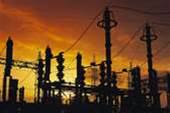US internet users could consume seven times more power in the next ten years as the pace of energy efficiency improvement slows, Alcatel-Lucent Bell Labs scientists have warned.

Scientists extrapolated today's growth rate of North American backbone network traffic to forecast a drop from 40 to 60 percent currently to 25 to 50 percent by 2020.
Meanwhile, energy efficiency would only increase by 10 percent per year, they found, noting that energy would become an increasing problem as internet usage grew.
Bell Labs was a member of the international Green Touch Consortium, which also involves the University of NSW and the University of Melbourne's Institute for a Broadband-Enabled Society.
Bell Labs researcher Dan Kilper was due to speak about the "Optical Transmission Energy Consumption in the Internet" this week, at the Frontiers in Optics (FiO) conference in New York.
Earlier this year, University of Melbourne professor Rod Tucker estimated that all the components of the internet - including networks, data centres and search engines - accounted for two percent of the world's electricity consumption.
Online data was growing exponentially, he said, so that if efficiency and the world's electricity supply did not change, the internet would use 60 percent of the world's electricity in ten years' time.
"Our future really hangs on the continued improvement of the technology and the problem is that's not really enough," Tucker said in a University podcast.


_(36).jpg&h=140&w=231&c=1&s=0)
_(33).jpg&h=140&w=231&c=1&s=0)
.png&h=140&w=231&c=1&s=0)






 iTnews Executive Retreat - Security Leaders Edition
iTnews Executive Retreat - Security Leaders Edition
 iTnews Cloud Covered Breakfast Summit
iTnews Cloud Covered Breakfast Summit
 Melbourne Cloud & Datacenter Convention 2026
Melbourne Cloud & Datacenter Convention 2026
 The 2026 iAwards
The 2026 iAwards











_(1).jpg&h=140&w=231&c=1&s=0)



